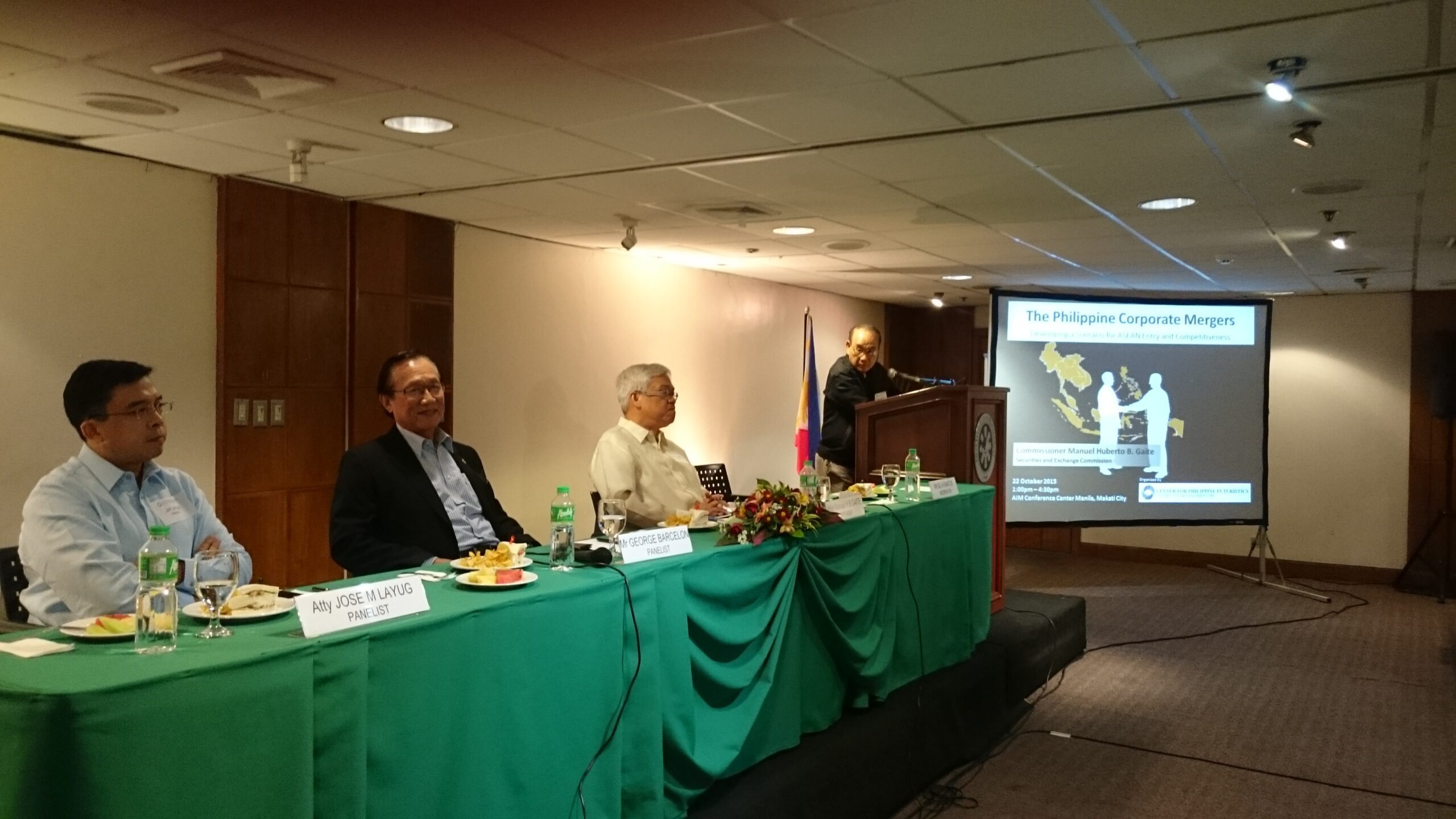SUMMARY
This is AI generated summarization, which may have errors. For context, always refer to the full article.

MANILA, Philippines – The integration in process as part of the ASEAN Economic Community (AEC) brings both opportunities and challenges, and domestic firms will have to prepare for them.
The energy sector, which has already been opened to outside investors should do fine, but the sugarcane industry is in trouble, said lawyer Jose M. Layug, former energy undersecretary and senior partner at Puno and Puno Law Offices, at a conference on ASEAN (Association of Southeast Asian Nations) competitiveness on Thursday, October 22. (READ: Neighbors catching up to PH as ASEAN integration looms)
“The sugarcane industry will definitely be adversely affected. If you compare the cost of producing sugar domestically compared to our ASEAN neighbors, it’s really far. Theirs is much cheaper and if we don’t help the industry and the farmers they’ll be in trouble,” he said.
“Already, there are people importing sugar illegally and at some point that will be legal pursuant our ASEAN Free Trade Area (AFTA) obligations,” Layug said.
ASEAN neighbors like Thailand and Vietnam have provided subsidies for their sugarcane industries which has resulted in them grabbing a much larger share of the global market, while in the Philippines, sugarcane is “probably the only industry that is not receiving any subsidy from the government,” he added.
What the government has done in response is to pass the Sugarcane Development Act which aims to promote competitiveness of the industry and help small sugarcane farmers. Passed in April of this year, it will provide infrastructure support, farm to mill roads, and a block farming scheme.
Still, Layug said, other ASEAN neighbors have been providing this kind of support for years and will continue to boost their sugarcane industry while the Philippines is only starting.
One of the intitiaitives that help, he added, is a co-generation scheme to develop biomass plants that uses sugarcane to produce power to give farmers an additional market to sell to.
Energy sector would be fine
The energy sector on the other hand, he said would not be affected by the integration and in fact stands to benefit from the new cross border opportunities.
Since the passage in 2001 of the Electric Power Industry Reform Act, the sector opened to private investment, and thus have seen an influx of new players, he said.
Although it is dominated by 3 major players namely Aboitiz, Lopez Group, and San Miguel Corporation, there are a lot of smaller players who have come in, particularly in renewable energy, he said.
The challenge is to make the sector more competitive as the integration will no doubt attract more foreign investments.
Renewable energy projects are often too small in terms of output for the “Big 3” to touch, so they tend to focus on more big ticket projects and that is where other players come in. Unfortunately, it takes about 200 signatures to get permission for a new plant so that needs to be improved, Layug said.
The Energy department reported on October 22 that it has already awarded 686 renewable energy contracts, 7 years since the Renewable Energy Act of 2008 was enacted into law. As of end-September 2015, the agency said that these contracts have a potential generation capacity of 13,650.29 megawatts (MW) as against a total installed capacity of 2,937.06 MW.
Also, the 60-40 law limiting foreign ownership is another hindrance as it discourages foreign investment that can provide much needed capital for renewable energy projects.
The Securities and Exchange Commission has approved a measure that allows for foreign investors to provide 80%-90% of the capital, but are only allowed to have 40% of the voting rights to determine the direction of a firm, Layug said.
“It’s a struggle to find a foreign firm that will put up a majority of the capital without having a majority share in the firm’s decisions,” he said.
At the same time, regional integration will make it easier for the Big 3 firms, and for financially strong conglomerates like Ayala Corporation that are new to the energy industry, to invest regionally.
Indonesia has a shortage of power and the government has signaled its intention to sell some coal power plants, Layug said, while Myanmar has massive shortage and presents a lots of opportunities.
Regional mergers
Panelists at the conference organized by the Futuristics Center and the Asian Institute of Management also delved into the legal hurdles of corporate mergers, both domestic and regionally with the ongoing integration.
This comes at a time when business leaders foresee many potential regional mergers, as well as domestic consolidation to happen in order to improve a firm’s competitiveness as regional players enter the market.
“We’ve seen many industries begin to consolidate in the past few years in preparation for more competition,” said Philippine Chamber of Commence Industry (PCCI) Trade and Services Chairman George Barcelon.
For example, the retail sector and in particular wholesaler, Puregold, has been buying up small markets in order to accrue economies of scale.
Rural banks have also been merging along with a lot of private schools in preparation for the K to 12 reform, along with real estate firms and holding companies, he added. (READ: SM, Berjaya execs to PH: Focus on vocational training than K to 12)
In the immediate future, Barcelon said that cement and steel industries will see some consolidation due to China’s slowdown and the slowing global demand.
“The integration also provides a great opportunity to attract more foreign investments, and yes, there will be more competition for local firms,” he said, “but it will be healthy competition.” – Rappler.com
Add a comment
How does this make you feel?
There are no comments yet. Add your comment to start the conversation.